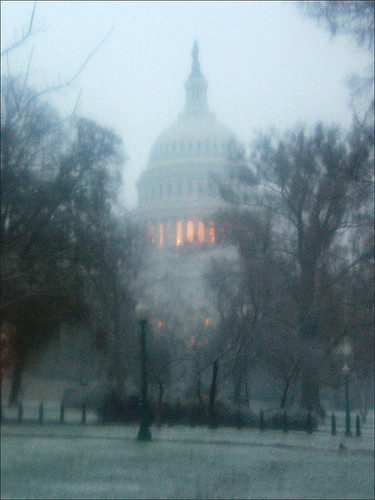
It is not just the snow that paralyzes Washington these days. It is the American government system that is seized up. We have no lessons to give, of course: France practices a presidency from another age, quasi-monarchical. But the mechanisms intended by the founding fathers of the American Republic — the modification of powers and counter-powers designed precisely to avoid any drift toward monarchy — function worse and worse.
What is in question here is the bicameral Congress — the White House, the legislative and the executive head. We are not in Paris: On the banks of the Potomac, Congress — the House of Representatives and the Senate — is a real political force, endowed with real power, such that nothing is done without it. The White House must negotiate, step by step, each text that it wishes to see adopted. Whether or not the group that presides over Congress is that of the president does not change anything: The majority party has objectives and interests that are not necessarily those of the president, even if they are on the same team. This is exactly what is happening today.
Possessing a Democratic majority in both chambers, Barack Obama struggles to get past certain key reforms in his program. Many large legislative plans are blocked, stuck in endless shuttles. Health care reform has, of course, gone like this. But no less important, financial regulation and measures for employment support have gone likewise. Nothing has been passed yet.
American political scientist Francis Fukuyama observed recently in our pages, “The American system of balance of power has morphed into a more and more dysfunctional mechanism which allows putting off indefinitely the resolution of difficult problems.”
We will evoke two principal reasons. The first relates to the growing difficulty of freeing qualified majorities with a Republican party that has made a devil of Mr. Obama. Called the “Party of No,” the Republicans employ obstructionism, which symbolizes a democratic regression. The second reason concerns campaign financing. If Congress is unpopular in the United States, it is because too many representatives continually depend on special interests — from the pharmaceutical industry to that of finance — such that they are then used at the expense of the public interest.
Mr. Obama promised to reform Washington. It is an emergency.

Leave a Reply
You must be logged in to post a comment.